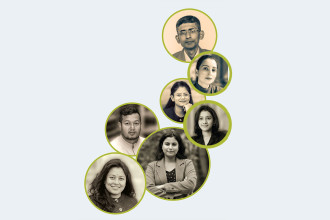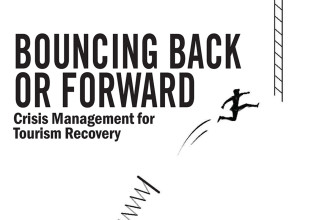
As per a report published by the United Nations, 37% of women do not use the internet or do not have access to internet. At a time when the smallest of things have a digital interface, digital inequality translates into social inequality. The International Women’s Day 2023 focus is to explore how digital inequality impacts the social positioning of women in society. The UN Women’s Gender Snapshot Report 2022 has found that the exclusion of women from the digital world has caused a loss of $ 1 trillion for various countries. This loss is expected to grow to $1.5 trillion by 2025. Therefore, the UN Women has chosen ‘DigitALL: Innovation and Technology for Gender Equality’ as the theme for this year. It is being done to highlight the importance of digital education for women and the contribution of women to digital innovation.
IWD 23 also highlights the importance of women’s security in digital spaces. Safety is an issue that restricts women’s usage of the internet as a tool for growth. A UN report states that a study of 51 countries found about 38% of women face online violence.
World over, organisations are recognising and celebrating women and girls who are championing the advancement of transformative technology and digital education. Similarly, in this edition of Business 360, we spoke to a few women working in tech about their thoughts on the digital divide, barriers to their career in tech and more importantly, what they love about tech and what can policy makers do to advance women’s participation in tech. Here is what they had to say…


Roja Kiran Basukala Deputy Director, Nepal Telecommunications Authority
Munni Rajbhandari

Jayanti Mala Chapagain
Founder, Spiker Solutions

As a female in tech, what has been the most significant barrier in your career?
When we think of the tech world at a surface level, it may seem like there is no barrier for a woman to enter and excel in the world of tech. The increase in remote work culture, freedom of working from anywhere anytime, good pay scale, increasing opportunities in the global market, social reputation, etc might seem very lucrative and most of them are actually achievable. But when we dig into it at a deeper level, factors like unconscious bias to self-doubt to difficulty in returning to work after giving birth, the not-so-gender-friendly work culture, etc are some barriers that many women have faced during their careers. For me, along with the numerous hurdles, stereotypes and generalisations, being the only female in the core tech team in a few organisations during my early career, I had self-doubt in myself, which I think acted as a barrier in my career.Have you been confronted with gender-related roadblocks in your career?
Yes, I have faced gender-related roadblocks in my career. However, I have been able to overcome them with positive thoughts, hard work and dedication, self-belief and motivation, along with support from my family.Do you think women have the same opportunities as men in the tech world?
Several studies and reports have shown that women face different challenges in the tech world. Some of them are the lack of female role models, gender pay gap, unconscious bias and gender-based discrimination in the tech industry. These have resulted in fewer women in leadership positions and technical roles in the industry. However, in recent years, different initiatives and organisations have started working to increase diversity and inclusion in the tech industry. Organisations are actively promoting to recruit and retain more women in tech roles, along with providing mentorship and leadership opportunities, and creating more inclusive workplace cultures. Along with that, the percentage of barriers that women have faced is seen to be declining as compared to previous years, as per different surveys, which is a very positive thing in itself. So, in recent years, a lot of progress has been made to ensure that women have the same opportunities as men in the tech industry.Your initial spark to enter this industry?
I was fascinated by the world of animation and game development during my school days and was very interested in the gaming field. Later on, the same interest I had inspired me to pursue my career in the tech industry.Your most exciting project to date?
In my 15+ years of career in the tech industry, I have had several opportunities to work with national and international clients from across the globe. From working for SMEs to creating their digital presence to working on a complex algorithm to creating web and software applications, I have always been excited to work on solving problems. Possessing the skills of turning ideas into reality by building a product is such an empowering feeling for me, and because of this, I find most of my projects exciting.Encouraging women-led tech businesses and startups by providing tax discounts, subsidies, and easy access to finance would certainly help to create sustainable businesses.
Top skills that anyone, who wants to work in tech, need?
The tech industry itself is a global and vast industry. There are different varieties of skills like programming and coding, data analysis and analytics, UI/UX design, cloud computing, artificial intelligence, machine learning, etc which are mostly in demand in the current scenario. However, such skills-in-demand vary from time to time as the tech industry is constantly evolving. So, willingness to learn and quick adaptability is another skill that a tech professional would require. Similarly, the skills of effective communication, teamwork, attention to detail, time management, and problem-solving skills are helpful for tech professionals. It is also important to keep in mind that different roles in the tech industry may require different skills, and individuals may need to develop a unique range of skills to succeed in their chosen career path.What is the best professional advice you’ve ever received?
Keep learning and growing, and be open to seeking guidance and feedback along the way.What advice would you give to young professionals starting in tech?
If you are starting in tech, the constantly evolving new technology and terms might sometimes be overwhelming and difficult to decide your career path. During such times, exploring different possible career paths and focusing on a path that interests you the most might be helpful. Then working on polishing your skills required for the career, and meeting new and like-minded people in order to build a strong network is also found to be helpful. Similarly, try to find mentors who are experienced in the field and can provide you with valuable guidance and support as you navigate your career in tech.Your biggest role model?
As a child, Bill Gates used to be one of my role models. However, many young entrepreneurs who are working to solve real-world challenges also inspire me.What can policy makers do to advance women’s participation in tech?
There are many things policy makers can do to help advance women’s participation in tech, including encouraging girls to pursue STEM learning from a young age. Similarly, encouraging women-led tech businesses and startups by providing tax discounts, subsidies, and easy access to finance would certainly help to create sustainable businesses. Additionally, providing funding and support for women-led businesses, including grants and tax incentives is another factor to be considered. Creating a more equitable and inclusive tech industry can promote opportunities for women and support their participation and advancement in the tech field.Shreeti Shrestha
Software Engineer, Cotiviti Nepal

As a female in tech, what has been the most significant barrier in your career?
While there has been an unprecedented evolution in the field of technology making it a crucial part of the global economy, it is equally disheartening to realise the persistent issue of the gender gap and underrepresentation of women in this emerging field. Despite the centuries-long revolutions of the fight for equality and justice, it is unfortunate to have that same old trend and way of thinking reflected in the modern society that is driven by technological advancements. It is high time we realise and eliminate the problem and its root causes; for the lack of diversity could undermine the overall development of the sector due to the limit on creativity and ideas.Have you been confronted with gender-related roadblocks in your career?
Having chosen the tech field as a career, I have always believed in breaking the stereotypes of society, whether it be related to gender or disability. There are a lot of significant barriers women or girls in this field face, particularly the lack of inclusivity, recognition, and acknowledgment in the workplace, and gender-related stereotypes and biases are more visible, either directly or indirectly. Often women are not trusted enough for leadership roles, considered less knowledgeable and skillful, and held back from career advancement in many cases. On top, being a woman in tech with a disability in Nepal in this scenario has added more challenges like the lack of basic level accessibility in terms of physical infrastructure in workspaces, social stereotypes, and attitude, which have been the most significant barrier in my career path.Do you think women have the same opportunities as men in the tech world?
Personally, more than that, I have felt the lack of equal participation and lack of representation are major issues. Not having that mentor, leader or guidance and lack of equal access to opportunities for professional development and training might be the reason. On the other hand, based on my observations, it all starts from the educational level when young girls are not encouraged enough to pursue their dream careers in the STEM field. Although I was blessed with people around who encouraged me at every step and path in my career, I came across the realisation of this when I realised there were only five female students among a total of 48 students pursuing Computer Engineering in my class back then in my undergrad years. To present a different view, rather than blaming it all on society and its rudimentary thoughts, I also feel like the self-sabotaging, and lack of confidence in some females have limited their access to different opportunities. Often there are cases where there are enough opportunities but that deeply rooted stereotype of not being capable enough becomes the roadblock to participation.Your initial spark to enter this industry?
My choice of being in the tech field roots back to my early childhood experiences with it. I was fortunate to experience the power of technology at an early age and since then have been drawn to its potential as a panacea to every complex problem. Impressed by how it can create a difference in the lives of people to improve efficiency, productivity, and quality of life, I also realised technology could be a beacon of hope for me personally in moments of despair by breaking the physical barriers of my disability.Your most exciting project to date?
While I love creating and exploring different projects and have been involved in a handful of them so far in my software engineering journey, the most exciting project I have worked on would still be the very first project that my team and I had created and delivered as a college project. Although it was a simple, naïve and rather embryonic implementation for a pharmacy management system, I still love the part about how we were deeply immersed in the idea, the level of ownership with it, the way we planned, designed, and built the system, and the amount of experience that we gained from it that became rewarding later. Moreover, I love the fact that the first project I had envisioned and worked on was based on solving a real-world problem. I always believe having a problem-solving nature, room for creativity, strong technical expertise, and communication and teamwork are the must-haves for any individual on this career path.Having chosen the tech field as a career, I have always believed in breaking the stereotypes of society, whether it be related to gender or disability.
Top skills that anyone, who wants to work in tech, need?
Reflecting on my career path, I was lucky to have been advised early on by my seniors, colleagues, and friends that building a strong technical foundation initially, and then iterating for improvement and perfection is the way to go.What is the best professional advice you’ve ever received?
I was always encouraged to face challenges, take risks and never lose hope by the people around me with their constant support and encouragement. While I don’t have a specific person as a role model for me, I believe in the fact that every person around has a good side to be learned from and thus, I trust in getting my inspiration from those good sides in every person.What can policy makers do to advance women’s participation in tech?
While the joint efforts of everyone in creating a more inclusive and bias-free tech industry are crucial, it is equally important that the concerned policy makers also take some key steps to help advance women’s participation in tech. Investing in STEM education and promoting girls to pursue STEM careers could be one of them, whereas, promoting diversity and inclusion in the professional world, and creating different training and hands-on workshop opportunities around it is also essential. As the theme of IWD 2023 itself states it all – ‘DigitAll’, technology is an industry of revolution for all and it requires collaborative efforts from diverse groups of people to ensure that everyone is not only included in the tech field but also supported and empowered, to reach the full potential of the wonders it can create.Roja Kiran Basukala Deputy Director, Nepal Telecommunications Authority

As a female in tech, what has been the most significant barrier in your career?
Being a woman, I already have the challenges of balancing work and family life especially during menstruation period, pregnancy period, breastfeeding period and during work from home period in the Covid 19 situation when the kid was seeking high attention. However, I have been putting possible efforts to tackle these challenges with proper family support by offloading the family works that can be shared among family members. That’s why I am able to work dedicatedly with all my possible efforts. With this, I was also recognised as “Best Employee of the Year” during the breastfeeding period. Moreover, I achieved ICT Excellence Award (Woman) 2022 from the Ministry of Communication and Information Technology, Government of Nepal; Outstanding Youth Professional Award 2022 from Nepal Engineering Association; and Most Influential Person of the Year 2022 from Regional Society of Trade and Commercial Angel. Amidst these challenges and achievements, the most significant barrier I have ever faced is the organisational politics played by management and male colleagues to block the career growth of marginalised people like women in the tech industry.Have you been confronted with gender-related roadblocks in your career?
Yes, I have been confronted with gender-related roadblocks for career growth to the senior management positions. The organisational politics of male counterparts in the organisation created such roadblocks in my career though I am highly competent for such positions.Do you think women have the same opportunities as men in the tech world?
Yes. I do have the same opportunities as men in the tech world as I have been contributing equally as men. There are no gender roles in this industry and everyone is capable of handling the responsibilities irrespective of any gender.Your initial spark to enter this industry?
My initial spark to enter this industry is the encouragement provided by my late father and my elder brother to contribute in the field of science and technology where there are less people, especially women. Moreover, my elder sister who is involved in government service encouraged me to contribute to the tech aspects in government service.Your most exciting project to date?
The most exciting project to date is the formulation of cyber security bylaw for the telecommunication sector amidst the Covid 19 when more cyber incidents were taking place around the world.There are no gender roles in technology. Determination and dedication lead to success. Grab the opportunities around you. Remember, opportunities may not knock on your door twice.
Top skills that anyone, who wants to work in tech, need?
The top skills that anyone who works in tech needs is the ability to keep learning and be updated with the advancement of technology as it keeps changing at a very fast pace. Developing self-confidence, self-motivation and dedication to work are equally important to succeed in the tech industry.What is the best professional advice you’ve ever received?
The best professional advice I have ever received is to contribute to society with possible efforts while moving ahead with regular professional activities.What advice would you give to young professionals starting in tech?
Technology needs more people like you. There are no gender roles in technology. Determination and dedication lead to success. Grab the opportunities around you. Remember, opportunities may not knock on your door twice.Your biggest role model?
My biggest role model is my father who was determined and dedicated to serve for the betterment of the public and the nation.What can policy makers do to advance women’s participation in tech?
Policy makers can advance the existing policies as per the demand of technology with more women’s involvement into it focusing on women’s digital rights for ICT access, ICT skills, career enhancement at the mid-level and decision-making levels. Only making policies is not enough. Execution and implementation of the policy plans need to come into practice for empowering women in tech through digital literacy and capacity building programmes for women throughout the nation.Munni Rajbhandari
Chief Operating Officer, Nepal Clearing House

As a female in tech, what has been the most significant barrier in your career?
I have never faced any barrier in my career because of being a female and have been empowered to be part of the strategic decisions and changes. However, I agree that we lack a workforce of women in the tech sector which is mainly due to the gap in STEM education due to stereotype beliefs discouraging girls and young professionals to pursue careers in the tech industry considering that the work in this industry is more demanding with odd working hours. This has resulted in the industry now being a male dominated industry. Despite the barriers and challenges, there are many successful women in the industry and are paving the way for future generations. And with the changing mind set and high demand of tech resources, we can now expect more women to consider careers in the industry.Have you been confronted with gender-related roadblocks in your career?
I have personally never been confronted with gender-related roadblocks in my career. During my career of almost two decades, I have always worked in a very conducive work environment and have been treated equally as my male counterparts. And I have always advocated to make sure that we are able to provide a similar environment for my female co-workers to encourage them to see no boundaries for the kind of work and for the contribution in the company.Do you think that women have the same opportunities as men in the tech world?
I personally always had the same opportunities as my male co-workers. However, as per the data of World Bank, women make up less than a third of the world’s workforce in technology related fields which clearly indicates lesser workforce which is due to discrimination that women face with not getting equal job opportunities and pay scale and women leaving their jobs with challenges that they face during their job with unsupportive work culture/environment and lesser opportunities for advancement.Your initial spark to enter this industry?
My initial spark towards the industry is its fast-paced nature, innovative advancements that can bring in change in the society and its rewards. And post Covid, attraction for the industry has increased with the possibility of remote work that helps in work-life balance when required. Besides for those who want to start on their own, the industry is overwhelming with opportunities to start on their own at a scale that they are capable of.Your most exciting project to date?
Working at NCHL has provided me opportunities to be part of various projects that have facilitated in changing the payment landscape in the country with innovative solutions for digital payments. We started with replacing the manual cheque clearing system with Electronic Cheque Clearing System and have enhanced now to the latest innovative payment systems and instruments for real time online payments as faster payments. The one that has been close to my heart is National Payment Interface (NPI) which is a consolidated API of multiple payment systems hosted by NCHL and other institutions built on an open API concept. NPI has been primarily supporting interconnection and interoperability for the members for seamless integration to Retail Payment Switch for real-time instant payments and NCHL-IPS for deferred credit payments and also provides access to all instruments, services use cases. NPI has been revolutionary in facilitating digital transformation of payments for government and semi-government institutions and major industries like remittance, insurance, stock market payments and other non-financial institutions besides banks and financial institutions. NPI has also been extended to the alternate channels of the member BFIs (internet banking, mobile banking, remittance channels, etc), wallets (PSPs/PSOs). Out of almost three lakh transactions being processed through NCHL on a daily basis, more than 50% are processed through NPI. Implementation of new use cases of Retail Payment Switch as part of the National Payment Switch project is also equally exciting with new use cases like VPA based payment, Request to Pay based pull transactions, and QR based payments through NEPALPAYQR.Top skills that anyone, who wants to work in tech, need?
There are numerous options in the tech industry like programming, designing, data analytics, security, infrastructure, project management, etc which require different skill sets. First you should be able to understand your area of interest and most importantly be able to embrace the latest technologies and innovation to be the market leader.Organisations need to understand that it’s not just about hiring more women but about creating a conducive working environment which also includes safety of women.
What is the best professional advice you’ve ever received?
To always keep learning and upgrading to do more in life. This has really helped me for my career advancement mainly when I entered the fintech industry nine years back as a naive banking career.What advice would you give to young professionals starting in tech?
Tech industry is the fastest growing industry in the world. In order to keep pace, all professionals in this industry will have to keep themselves updated on the latest technologies such that they can be used for new innovations. The latest technologies like artificial intelligence, machine learning, blockchain and Internet on Things (IoT) are some of the latest technologies that are driving the fintech industry and may change in no time so we need to keep ourselves updated to be irreplaceable.Your biggest role model?
All my mentors who have guided and motivated me to do more are my role models. There are many female leaders in the financial sector of Nepal who have led large institutions successfully and they aspire me.What can policy makers do to advance women’s participation in tech?
Policy makers can start by making STEM education accessible to all which will be critical to provide early exposure and generate interest in tech for girls. It is equally important for policy makers to continue advocating for equal opportunity and gender equality at schools, colleges and the workplace to ensure that going ahead we have a more diversified and inclusive workforce. Equal employment opportunities, mentoring and capacity building are some of the factors that all know help for advancement of women participation at work. But organisations need to understand that it’s not just about hiring more women but about creating a conducive working environment which also includes safety of women. Another major factor that matters is that the opinion and work of women are taken seriously and are valued at work which needs to be inculcated within the work culture of the organisation.Rumee Singh
Co-founder, Rumsan

As a female in tech, what has been the most significant barrier in your career?
As a woman in tech, you are often required to put in extra effort for people to take your abilities seriously. You frequently find yourself having to prove your worth and justify your skills and expertise, and still end up facing scepticism and doubt. At times, it’s extremely difficult to get your ideas and opinions across as a minority in the table.Have you been confronted with gender-related roadblocks in your career?
There are these biases where women are perceived less technically proficient or less capable of leading teams and it is a difficult process to unlearn for many. It’s very common to find yourself as the only woman in a room full of men. I’ve been in many situations where people tend to organically look at your male counterparts for opinions, and your voice and perspectives are brushed off. And you have to spend time trying to convince them to take your voice seriously, look beyond how you dress or talk, and treat you as an expert. The major roadblock is having to work more to build that credibility, which should not have been questioned in the first place because of your gender. But it does take grit to continue to power through.Do you think that women have the same opportunities as men in the tech world?
The representation of women in tech is significantly lower than men. We face many challenges and biases that impede us in pursuing tech opportunities and succeeding. So, it is definitely not a level playing field in terms of opportunities for women. It is crucial to have role models and mentors for women to envision themselves succeeding in this industry and to take risks. We need an inclusive and equitable environment that supports women’s contributions and encourages us to take it further.Your initial spark to enter this industry?
“Even a billion dollars of capital cannot compete with a project with a soul.” - Vitalik Buterin Technology has the power to transform societies, bring positive change and improve the lives of people. When I moved back to Nepal, I was really excited about how we can use technology to solve local problems and build social impact. I have worked on a number of initiatives that use technology and innovation to create impact. From a data-informed approach to cut out the stress involved in finding and managing blood for patients to building an online community-driven platform for children to learn through empowering stories during the pandemic, my through line in work has always been driven by impact. Now as a leader in a blockchain company, I am currently leading an open-source humanitarian aid distribution platform to strengthen financial inclusion. My initial spark and my guiding light in this industry continues to be the value of positive impact tech can bring.Your most exciting project to date?
I am currently leading the build and implementation of an open source blockchain-based aid distribution management platform to support vulnerable communities and help humanitarian organisations strengthen their efforts towards greater financial inclusion. Now as part of the UNICEF venture fund, we’ve had access to some amazing resources on blockchain technology and have built our solution as a digital public good. We are now implementing and testing this in global real use cases scenarios (more at rahat.io). The project has also helped me re-evaluate our design thinking process to address how we can map out gender inclusive digital solutions.Top skills that anyone, who wants to work in tech, need?
The only skill you need is curiosity. Curiosity fuels innovation and a love for life-long learning.What is the best professional advice you’ve ever received?
“Advocate for yourself”. As women, many of us tend to downplay our achievements. Share your successes and be proud to be recognised.What advice would you give to young professionals starting in tech?
As you focus on building your technical skills to start in tech, never underestimate the importance of soft skills! Good communication and the ability to work in a team are extremely important.Your biggest role model?
Jacinda Ardern - I believe in the empathetic leadership that Jacinda Ardern stood by as a leader. It was very reassuring to see a world leader who prioritised empathetic leadership while also getting some amazing work done.What can policy makers do to advance women’s participation in tech?
Create policies to encourage companies to be more inclusive and incentivise them to hire women in technical roles. Funding and resources to support women’s participation in tech. Also, policies to support work-life balance can make a huge difference to promote participation of mothers. READ ALSO:
Published Date: April 3, 2023, 12:00 am
Post Comment
E-Magazine
RELATED Opinion





